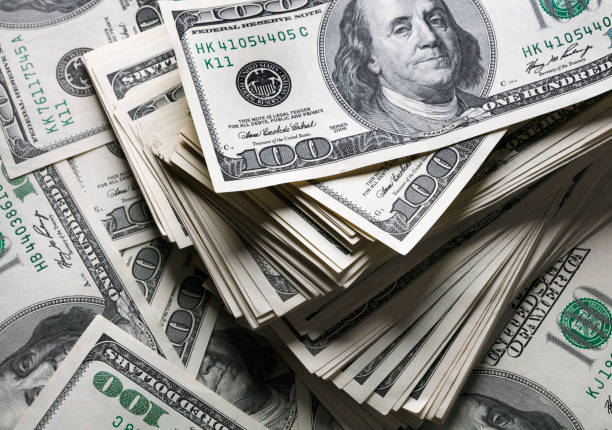Can Iraqi banks free themselves from the restrictions of the dollar?
 Economic data shows that monetary policy in Iraq remains restricted by its dealings with the US dollar, which makes the Iraqi economy hostage to US financial restrictions and policies, especially since Iraq relies almost entirely on oil revenues, which are priced in dollars. Accordingly, Iraqi banks remain subject to this system, which requires them to take serious steps towards reform and freeing themselves from this dependency by modernizing the operational structure and enhancing banking efficiency.
Economic data shows that monetary policy in Iraq remains restricted by its dealings with the US dollar, which makes the Iraqi economy hostage to US financial restrictions and policies, especially since Iraq relies almost entirely on oil revenues, which are priced in dollars. Accordingly, Iraqi banks remain subject to this system, which requires them to take serious steps towards reform and freeing themselves from this dependency by modernizing the operational structure and enhancing banking efficiency.
In this context, financial and banking expert Mustafa Hantoush stressed that the Iraqi banking sector is currently on the cusp of a new phase that may witness the beginning of freedom from dollar restrictions, but it still requires radical and comprehensive reforms. Hantoush told Al-Maalomah News Agency, “About 90% of the banking system in Iraq is still affected by dollar restrictions due to the problems and suspicions that have accumulated over the past years,” noting that “it is expected that some banks will begin gradually freeing themselves from these restrictions over the next three months.”
He added that “the banking process in Iraq is still limited in activity and requires the introduction of an integrated system that includes deposits, loan financing, and expanding investment areas, in cooperation with the Central Bank of Iraq to update existing banking standards.”
He explained that “achieving full financial inclusion is an essential step towards developing the banking sector by diversifying services and not limiting current accounts only,” stressing “the need to strengthen relations with international banks and open new correspondence channels that enable Iraqi banks to effectively integrate into the international financial system.”
He also pointed out that “updating technical systems and simplifying procedures to serve citizens represents a crucial stage in the reform process, provided that the complexities and administrative routine that limit the efficiency of banks’ performance are overcome.”
Meanwhile, Member of the Parliamentary Finance Committee, MP Moeen Al-Kadhimi, confirmed that the rise in the dollar exchange rate is mainly due to the trend of most traders towards the parallel market (black market) to purchase hard currency to finance import operations.
Al-Kadhimi said in a statement to Al-Maalouma Agency, “Most traders resort to the parallel market to obtain dollars,” indicating that “this trend has led to an increase in demand for the dollar on the black market, which has caused a significant rise in the exchange rate.”
He added, “The solution requires the Central Bank and the Ministry of Finance to facilitate banking procedures for real traders and control the movement of funds through the official banking system to reduce the need for the parallel market,” noting that “the continuation of this situation will lead to increased economic pressures and higher prices in local markets.” Al-Kadhimi concluded his remarks by stressing that “the Parliamentary Finance Committee is closely following this issue and will work to find urgent solutions that ensure the stability of the exchange rate and protect consumers from the repercussions of the dollar’s rise.”
Almaalomah.me
